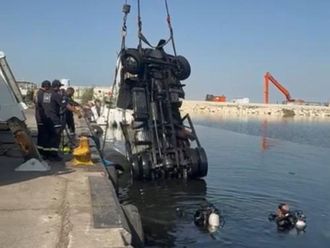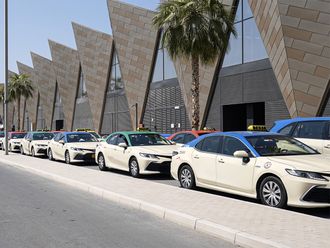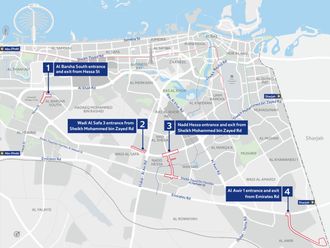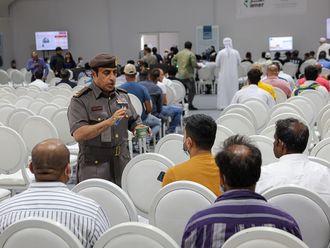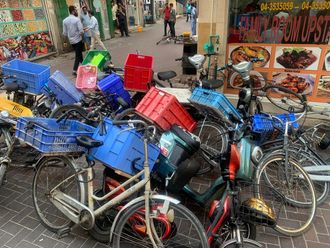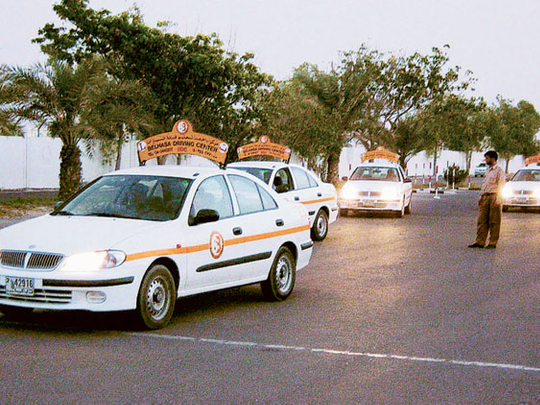
Dubai: Training to drive on the highway for a minimum of two hours has been made mandatory to obtain a driving licence in Dubai, officials announced yesterday.
"After passing the road test, drivers will now have to undergo driving lessons along the highway, with trainers beside them, before they are issued a driver's licence," said Ahmad Hashim Behroozian, CEO of the Roads and Transport Authority's (RTA) Licensing Agency.
"This will ascertain the drivers' ability to cope with the vehicle as well as other vehicles on the road."
He was speaking at the launch of the unified curriculum for all driving institutes in Dubai.
The unified curriculum for training and qualifying those wishing to obtain driving licences for light motor vehicles has been distributed to all institutes and has been put into effect since the start of this year, he said.
Significant
Training on the highway is just one of the changes the new curriculum will introduce. Other significant changes include mandatory night driving lessons and lessons on sudden braking in case of emergency situations.
"It is a complete training package, which takes the learner from attitude development and road safety awareness to vehicle familiarisation, from driving in simple to complex road networks to night driving until finally to freeway driving."
At present, every driving school has its own curriculum. "They all cover the major skills but by unifying we have put a structure around the training process and based on this the schools can come up with improvements," Behroozian said.
The new curriculum — delivered in Arabic, English and Urdu — has two components. The theoretical component comprises eight basic lectures and videos — including road rules, attitude and accident case studies — which are mandatory for trainees to attend as they cover safety standards and groom them to become able drivers, he said. The practical component comprises five basic stages including emergency braking, parking exercises, night driving and highway driving.
No additional costs
The number of mandatory lessons will still continue to be 40 lessons. This way the curriculum will not mean any additional costs for the trainees, Behroozian said, adding that the drivers will benefit from better training at the same cost.
The curriculum will follow a systematic progressive teaching method, whereby trainees will have to demonstrate their proficiency before being allowed to progress to the next step.
Three specific areas along the highway have been identified by RTA for training drivers, Hussain Al Saffar, Director of Drivers Training and Qualification department at the RTA, told Gulf News.
The road connecting the Business Bay crossing to Al Hadiqa Road, Emirates Road from near the Sharjah boundary up to Al Aweer Interchange and Al Aweer road leading towards Hatta are the areas identified.
"While driving along the highway, trainees will not be assessed because they would already have passed the road test. But the training is a means of managing risk on the highways," he said.
Asked if the new curriculum will make it easier or harder for aspiring drivers, Sultan Al Marzouqi, Director of the Drivers Licensing department, said that the RTA's focus is on allowing only safe drivers on the roads.
"The pass rate at driving tests has more than doubled recently, going from 17 per cent on average between 2008 and 2010 to 30 per cent in 2011. Accidents and deaths have also come down. This means drivers are being trained better," he said.



